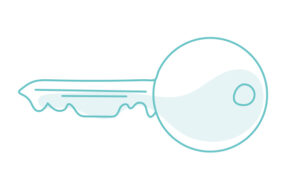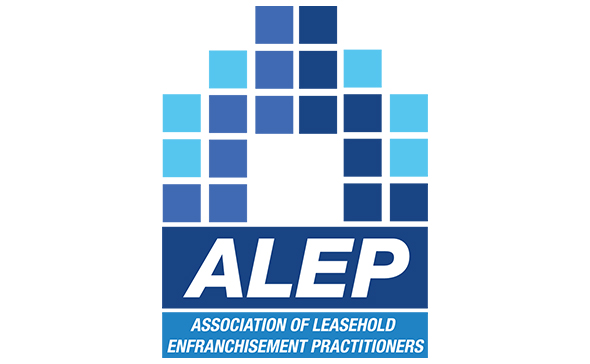Our lease extension experts have provided some answers here to some frequently asked questions regularly asked by those who are looking to extend the terms of their lease and secure the value of their property.
What is a lease extension?
When you buy a leasehold property, you are only securing the leasehold interest and the right to live in that property for a set number of years.
By purchasing a leasehold you are agreeing to the terms of the lease granted by the person or company who owns the building or land the property sits on, usually known as the freeholder, landlord or the lessor – and ownership of the property returns to this owner when the lease comes to an end.
A lease extension is an addition on the term of your legal agreement (‘lease’) with the landlord. For example a lease may only have 53 years left on the term, which would make the property more difficult to sell, especially to someone with a mortgage, so the lease would need to be extended.
The lease can be extended normally for a period of 50 to 999 years. Meaning for example if your original lease had 53 years left and you extended this by 90 years, you would then have a term of 143 years left on your lease.
How do I extend my lease?
You can extend your lease via two routes. The formal route, which involves you extending your lease in accordance with the Leasehold Reform, Housing and Urban Development Act 1993, which would normally involve the lessee (owner of the lease) getting a valuation from a valuer who specialises in lease extension valuations and providing this to a solicitor for them to draft a Section 42 notice.
Or, you can down the informal route, which means approaching the landlord directly to find out how much they would be willing to grant a lease extension for and the cost of this.

How much will the lease extension cost me?
This will be dependent on the value of the property, how long is left on the lease and the amount of ground rent currently being paid. We would advise you to get in contact with a lease extension valuer in relation to this.
How long does it take to extend my lease?
This will vary, as sometimes the landlord will instruct their own solicitors and valuers and you may not get a lease extension for approval until this is done.
If you also have a lender, we will normally have to involve them with the lease extension.
Do I need a valuation?
If you are going to get a lease extension through the formal route, we would always advise getting a valuation done, as if you value the lease extension too low, this could cause issues.
What type of valuation do I need?
You would need to get in contact with a person who specialises in lease extension valuations.
What is a Section 42 notice?
This is a document drafted by a solicitor and sent to the landlord. This document will contain information in relation to the value you have valued the lease extension at and any terms you may want to change in the lease.
Within this document you do have to give the landlord at least two months’ notice for them to respond.

How long can I extend my Lease for?
This is dependent on the route of which you extend the lease, if you go down the formal route, normally the lease would be extended for 90 years. If you extend your lease the non-formal route, this can be any amount of time which you have agreed with your landlord and can sometimes range from 40 to 999 years.
My landlord will not respond to me, how do I get a lease extension?
If your landlord is not responding to you, you can attempt to extend your lease through the formal route, which is when you send the landlord a Section 42 notice.
I am not happy with how much my landlord has quoted for a lease extension, what should I do?
If you have decided to go the non-formal route and you are not happy with how much the landlord has quoted you for a lease extension, then you can go down the formal route, but it would be best to talk to a lease extension valuer before doing this.
When is it best to extend my lease?
It is always best to extend your lease before the term reaches below 80 years. The reason for this is because as soon as the lease term goes below this term, you have got marriage value which increases the cost of a lease extension.
How long do I have to own my lease before I can extend it?
This depends on the route you go down.
If you purchase the property and want to get a lease extension done straight away you can approach the landlord informally, but the landlord can refuse to provide you with a lease extension.
If you have been registered as the proprietor of the property for at least two years at HM Land Registry, you can approach the landlord via a formal route, which would involve submitting a Section 42 notice. (Please note the two years start from the date you have been registered as the owner at HM Land Registry and not two years since you purchased the property).
How we can help
Fosters Solicitors are able to provide specialist support and advice for all your lease extension enquiries. To discuss any of the above issues and your particular circumstances, please get in touch with us on 01603 620508 or complete our contact form below.
Our property experts are vastly experienced in helping our clients through the entire process, guiding you through the options available, the approval and drafting of your lease extension, and helping you ultimately secure the long-term value of your property.

Send us your leasehold enquiry
Members of ALEP
Our leasehold property specialists are members of the Association of Leasehold Enfranchisement Practitioners.
Membership of ALEP acts as a badge of assurance so that leaseholders and freeholders can be confident that they are employing professionals with the right level of expertise in handling potentially complex transactions.

